Is League Client Not Opening? Try these 9 Fixes
Often, the League Client refuses to launch when there is a compatibility issue with the Windows resolution, or when too many processes related to the League Client are already running in the background. Since the Riot Client opens before League of Legends, you need to ensure that the Riot Client is running properly. If the Riot Client has not initiated correctly, the league will not launch.
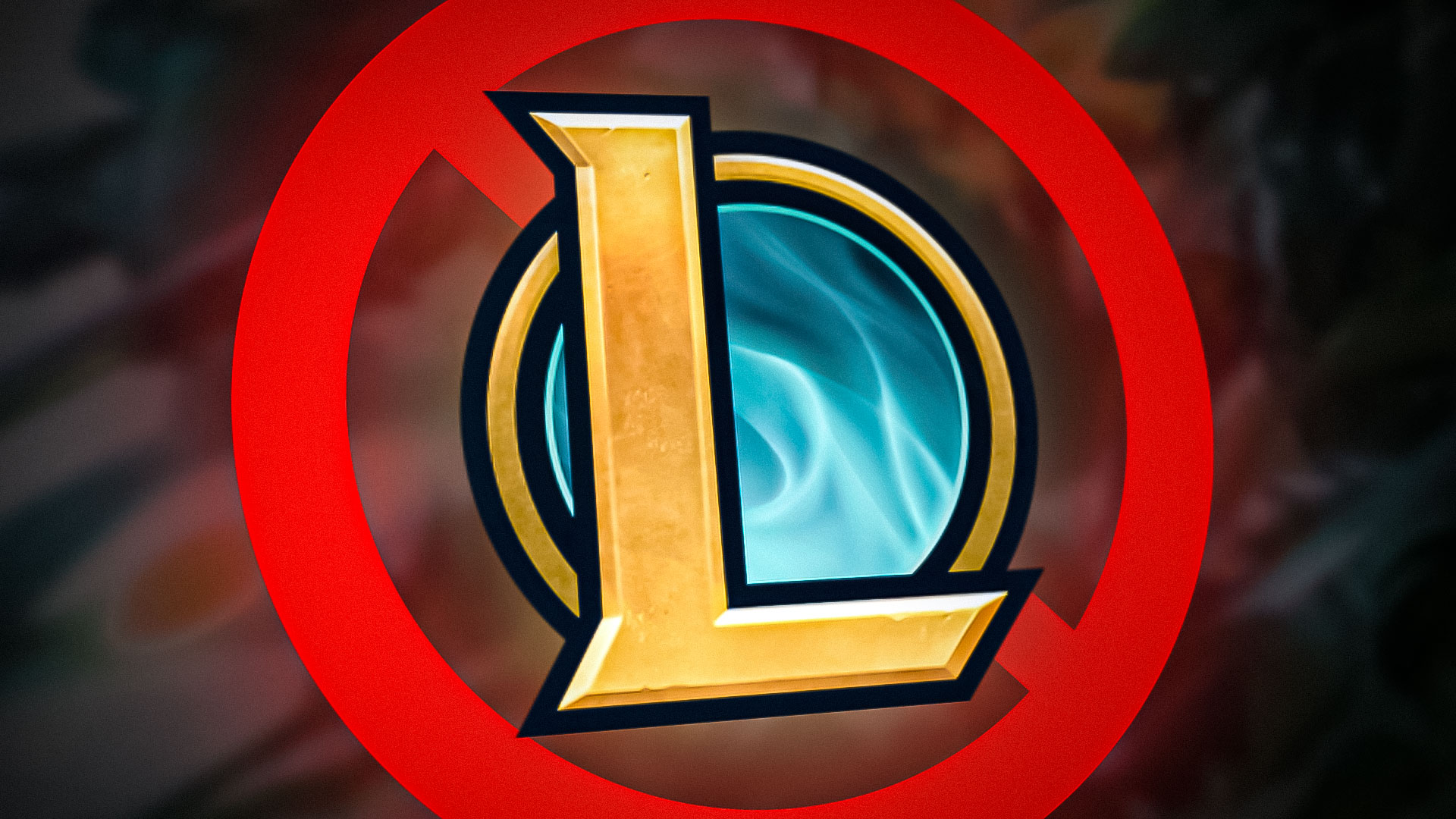
1. Reduce your display resolution.
Reducing the Windows resolution can help fix this issue because it is possible that your monitor does not support high resolutions or your graphics card is not capable of rendering more pixels per inch (PPI). High resolutions mean more pixels, which result in producing higher quality.
When you lower your resolution, the LoL client will launch with fewer pixels per inch (PPI). This will help if your monitor or graphics card is not capable of launching the League Client with a high resolution.
To reduce the display resolution, follow these steps:
- Right-click the desktop and select Display Settings from the context menu.
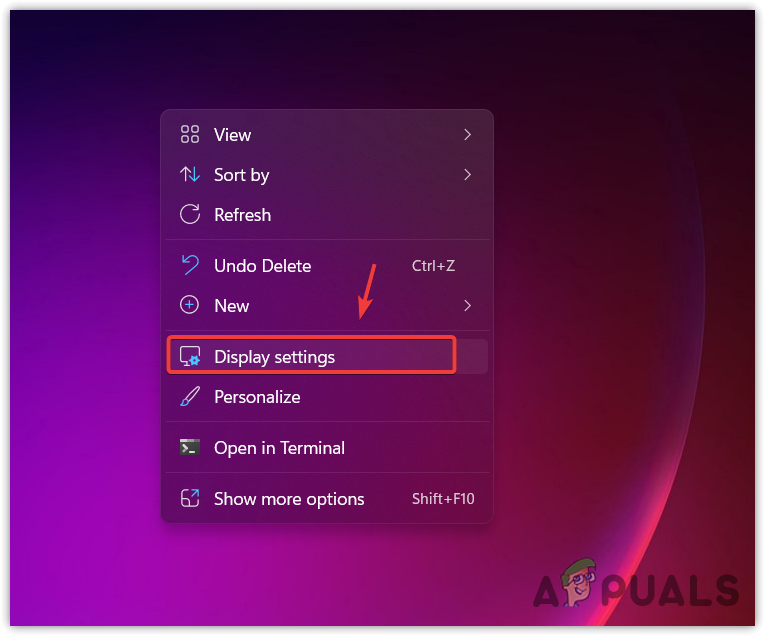
Opening Display Settings from the context menu - Once the display settings are opened, click on your current display resolution to view more resolutions.
- Now select any resolutions below 1600.
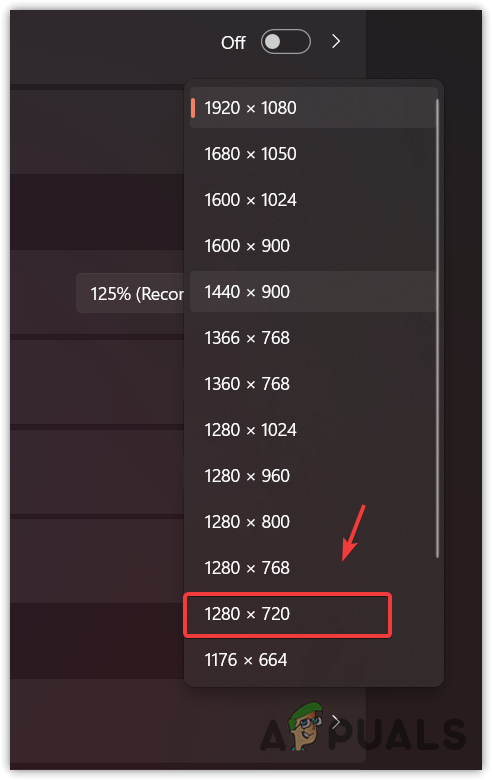
Reducing Windows Display Resolution - Once done, click “Keep Changes,” and then try to launch the LOL client to see if the issue is fixed or not.
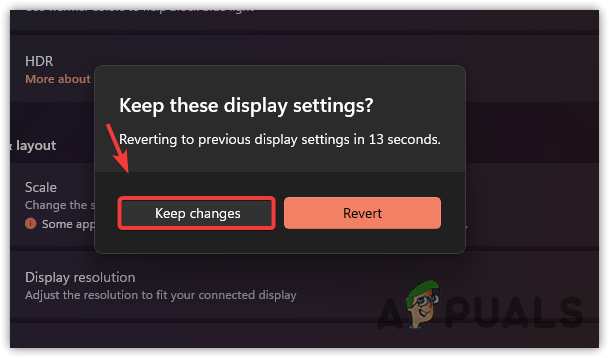
Keeping Windows Resolution settings
2. Open the League Client from the directory.
If the League Client is not opening by using the shortcut or the Riot Client, you can try launching it by navigating to its directory. Sometimes, the application gets corrupted, which causes it not to launch. Hence, try launching the League Client from the directory by following the steps.
- Right-click the LOL shortcut and select “Open File Location” from the listed options. You can directly navigate to the game directory if you don’t have a shortcut created.
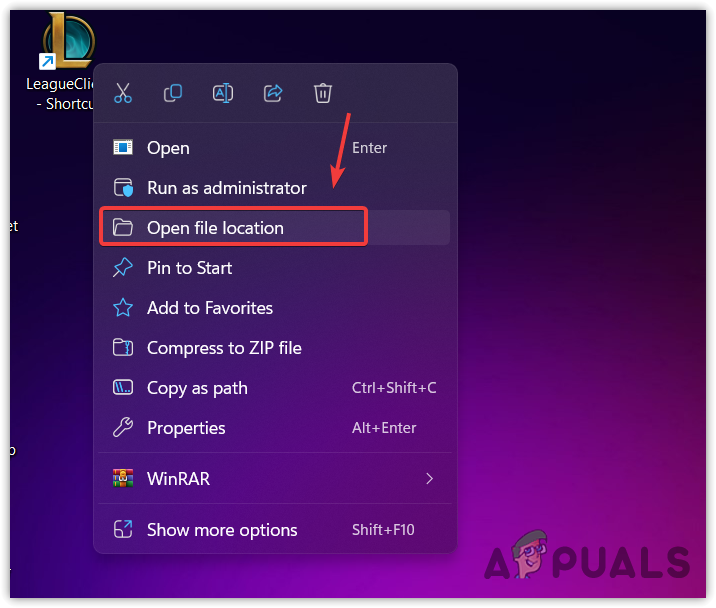
Opening League Of Legends Directory - Here, just double-click the League Client to open it. If it’s not launching, then follow the next methods.

Running League Client
3. Open League of Legends through the Riot Client.
You can also launch League of Legends through the Riot client, which will open the League client and fix your issue. Since the Riot Client is required for League of Legends, it is necessary that the Riot Client is running properly. Hence, try launching LoL from the Riot Client.
4. Close League of Legends completely, and then launch it as an administrator.
If multiple League Client processes are already running in the background, then the League Client won’t launch because Windows will think that it is already running and functioning. Hence, try closing all processes related to the League Client from the Task Manager.
Additionally, after closing the league client processes, we recommend running the league client as an administrator.
Running the League client as an administrator will help access the required DLL files and redistributables. It also helps bypass firewall interference, which sometimes blocks the executable files. To do so, follow these steps:
- Right-click the taskbar and select Task Manager to open it.
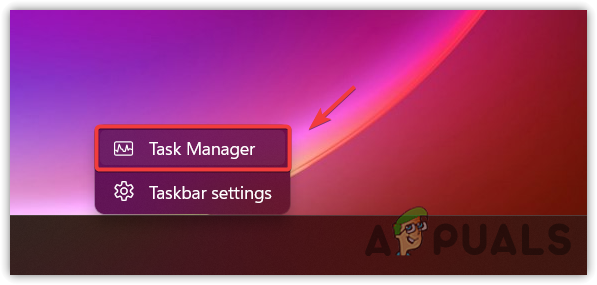
Opening Task Manager - Now right-click the league client processes one by one and select End Task.
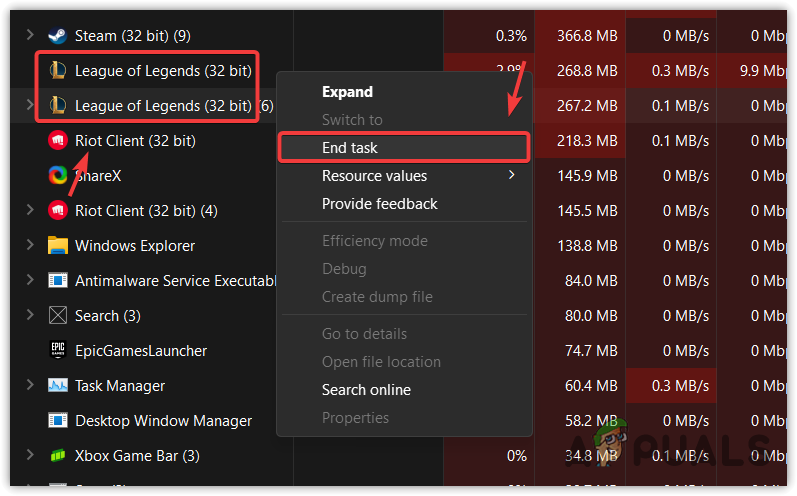
End Tasking League Client from Task Manager - Once you have ended all the tasks and processes, navigate to the LOL directory, right-click the League Client, and then select ‘Run as Administrator.’
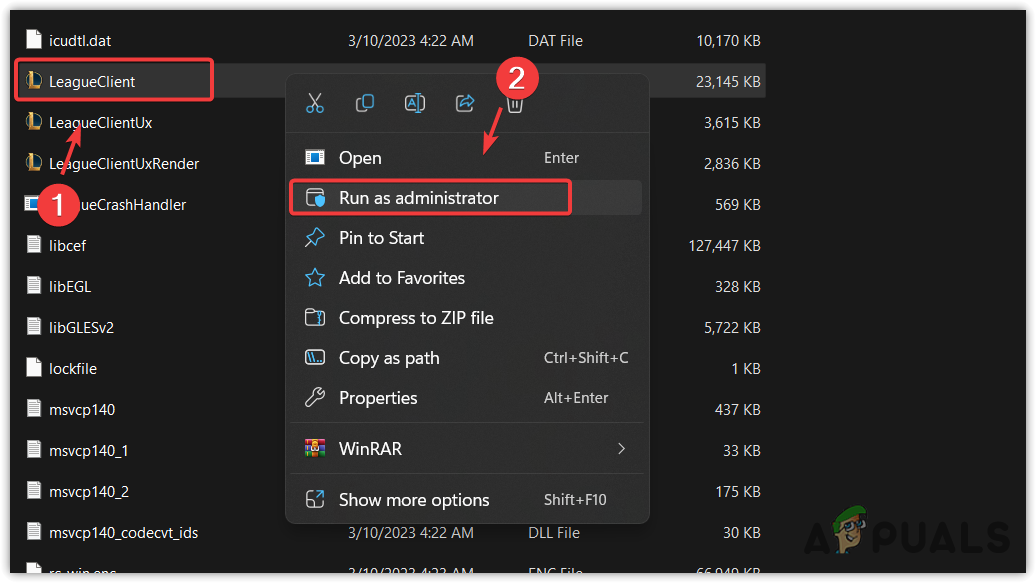
Running League Client as an administrator - Then, check whether the league client is opening or not.
5. Change the League Client and Riot Client Compatibility Settings.
Compatibility settings allow users to run the application with older versions of Windows. They also include various different features, such as disabling full-screen optimizations and running the application as an administrator.
Disabling full-screen optimization allows you to bypass Windows’ built-in optimization, which grants applications full control of display and graphics performance. Since applications have their own optimization features, there is no need to use Windows’ built-in optimization, as it can interfere with in-game optimization and result in this issue.
When the application refuses to launch, changing the compatibility settings can be one of the best ways to address this issue. To do so, follow these steps:
- Go to the League Of Legends directory.
- Right-click the League Client and go to Properties.
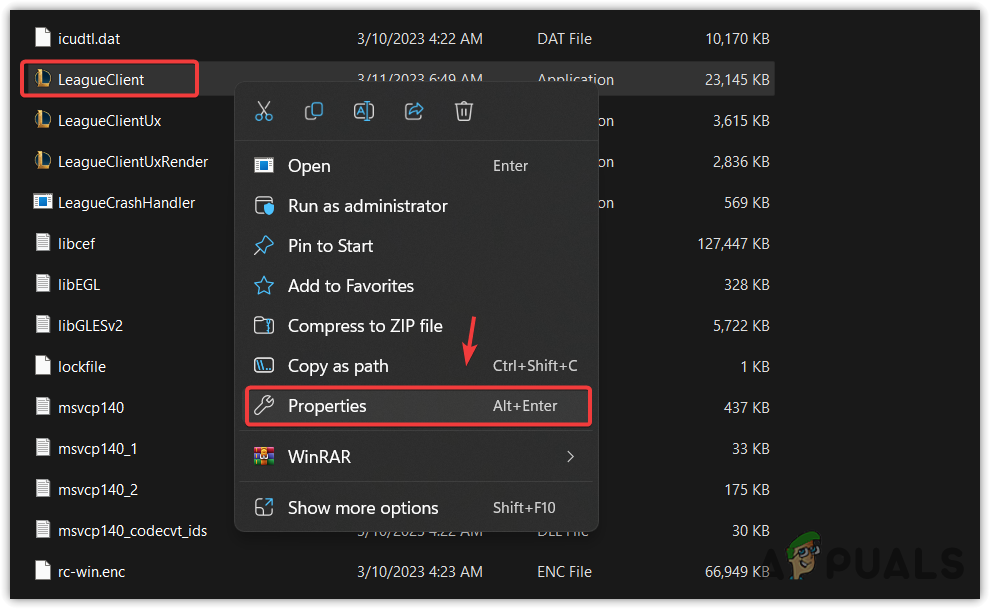
Opening League Client Properties - Then, go to Compatibility and check the box for ‘Run this program as an administrator.’
- Choose Windows 7 from the menu, then select “Run this program as an administrator” or “Disable fullscreen optimization.
- Once done, click Apply and click OK.
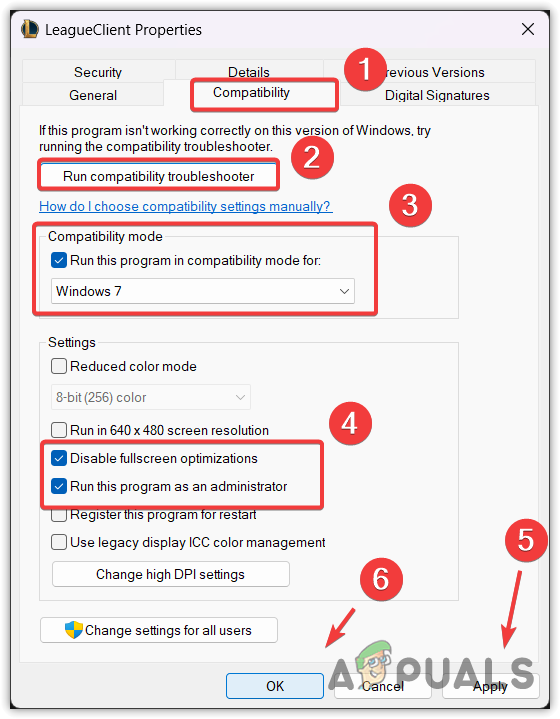
Configuring Compatibility Settings of League Client - Once completed, repeat the same steps with the Riot Client and try launching the League client to determine whether the issue has been resolved or not.
6. Allow League of Legends through your Windows Firewall.
Windows Firewall is a part of Windows Defender and is used to monitor incoming and outgoing data to prevent unauthorized access.
Your Windows Firewall has the ability to block the League client executable file, which can result in this issue. Thus, you need to add the League client to your firewall settings to determine whether the firewall is interfering or not.
Follow the instructions to add the League Client to the list of allowed apps in the firewall.
- Press the Windows key and type, “Allow an app through Windows Firewall.
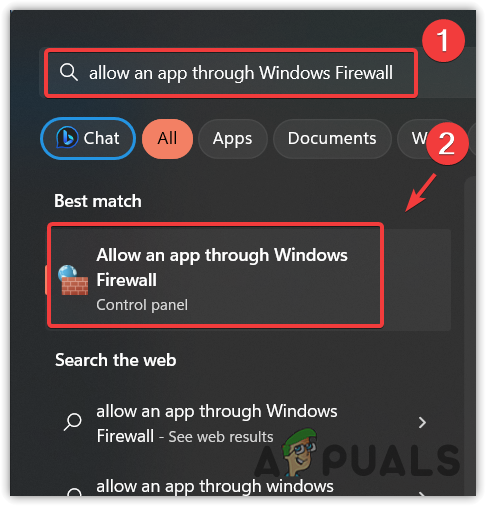
Opening Allowed Apps Firewall Settings - Open the Windows Defender Control Panel settings, and then click “Change Settings.
- Then, click Allow another app and click Browse.
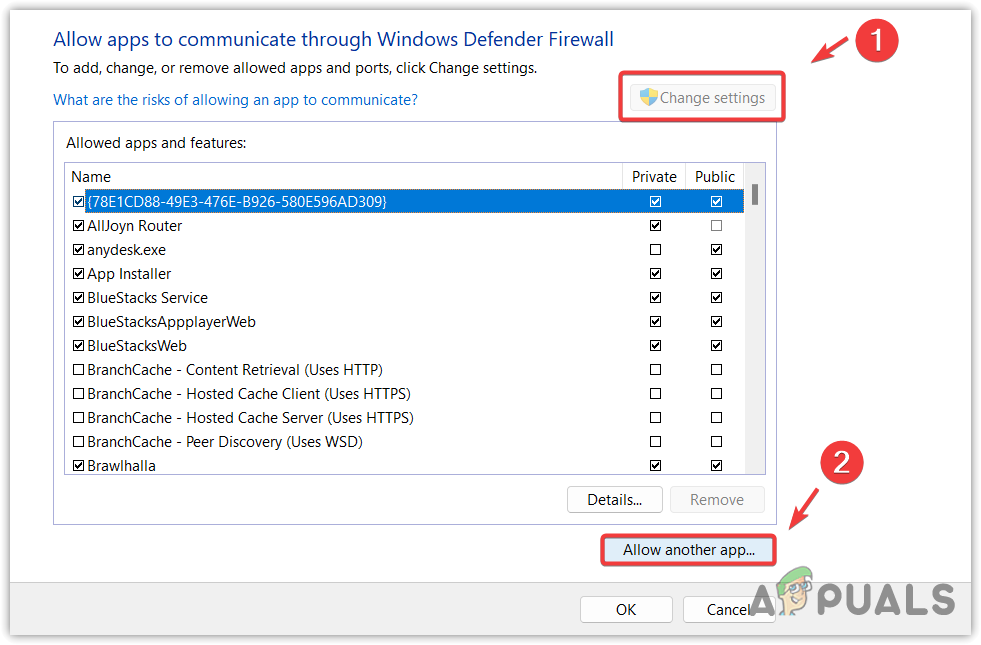
Heading to add an application to the firewall settings - Now navigate to the LOL directory and select the LeagueClient.
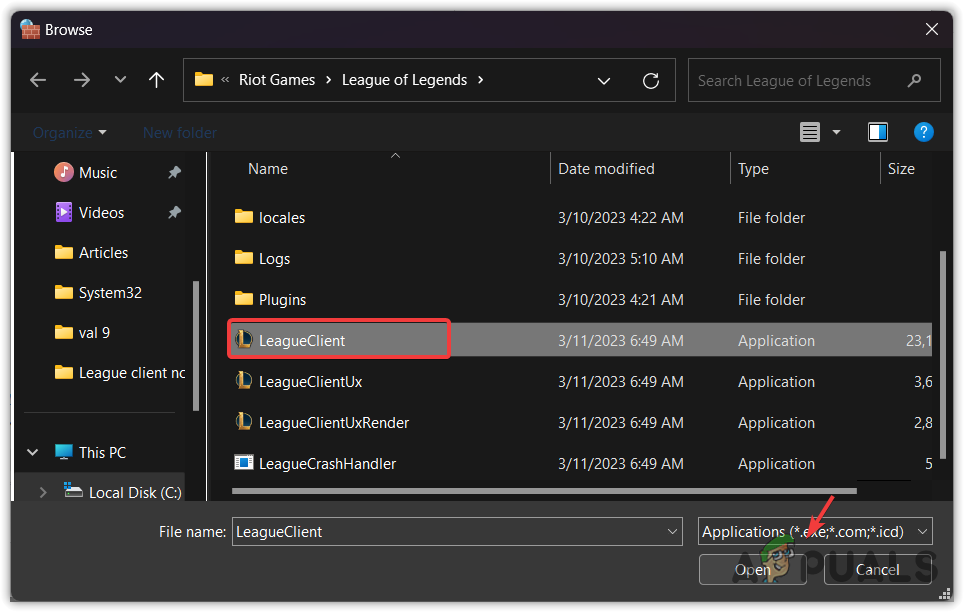
Selecting League Client to add it to firewall settings - Then, click Open and click Add.
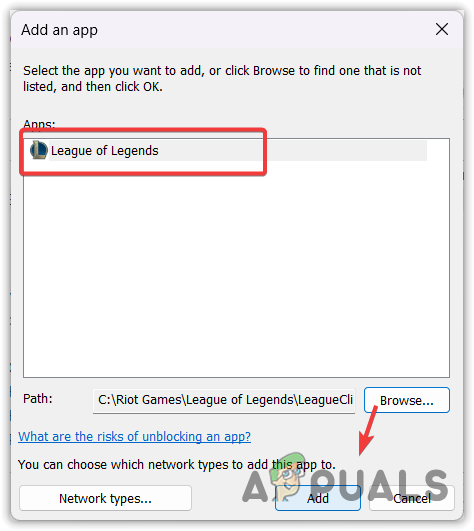
Adding League Of Legends into Firewall Exception - Once completed, check the “Private” box associated with League of Legends.
- Then, click OK to save the changes.
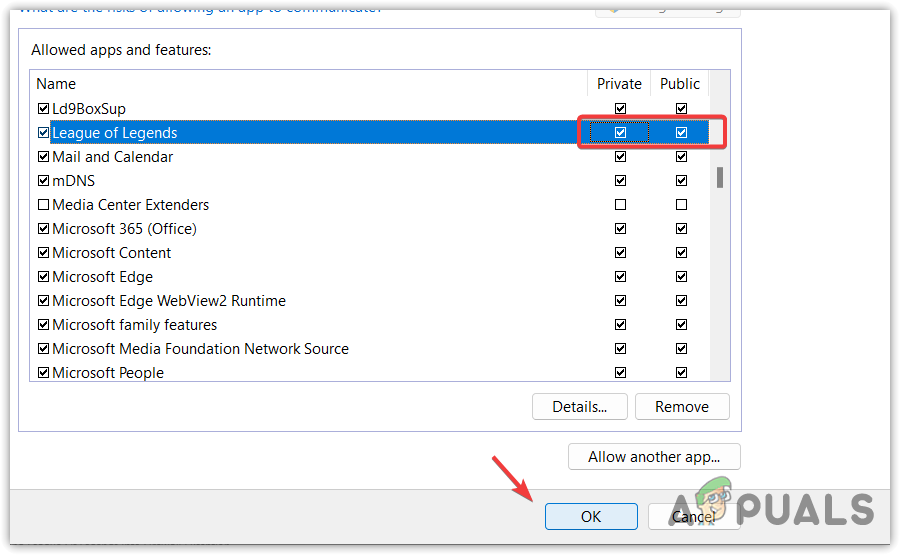
Allowing Private and Public Networks for the League Of Legends - Once complete, launch the League client to determine whether the problem persists or not.
7. Reinstall the Riot Client.
Since League of Legends is developed by Riot Games, it can be launched through the Riot Client, which is a launcher that should be running in the background. If there is a problem with the Riot Client preventing it from initiating, then the League Client won’t open. Hence, try reinstalling the Riot Client to check whether the issue will be fixed or not.
To reinstall the Riot Client:”.
- Open the File Explorer by pressing Win + E simultaneously.
- Navigate to the Riot Games folder, then right-click the Riot Client folder.
- Select Delete from the options.
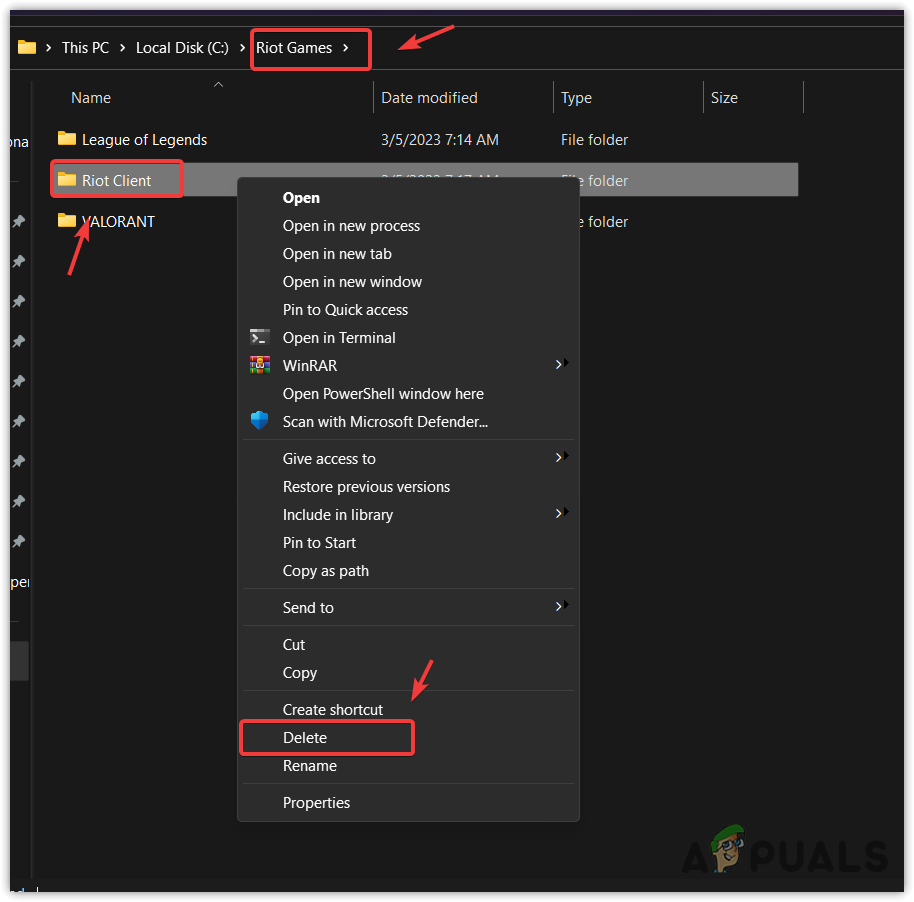
Removing the Riot Client folder - Once completed, navigate to the C: drive and proceed to the ProgramData folder.
- If you cannot find the ProgramData folder, click the View option from the top, hover over Show, and check the Hidden Items option to view hidden folders. Now, go to the ProgramData folder.
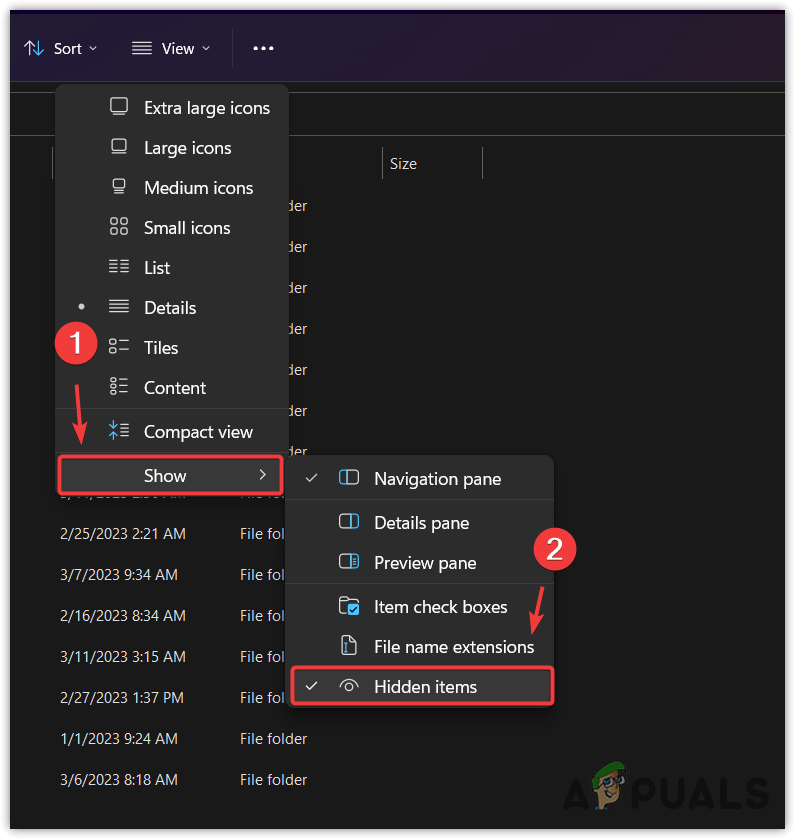
Viewing Hidden Items of system disk - Delete the Riot Games folder.
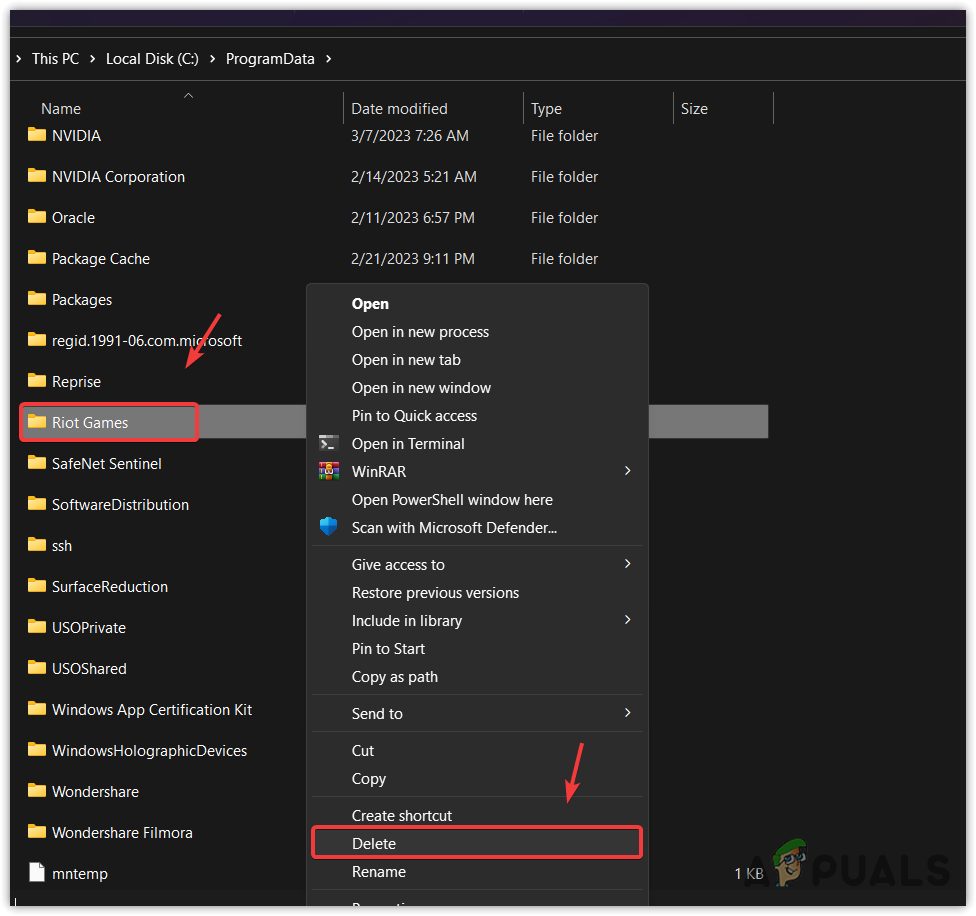
Removing the Riot Games folder from the programdata - Once the Riot Client and Riot Games folder have been removed, download the League Of Legends installer.
- Then, run the installer and select the folder where League of Legends is installed.
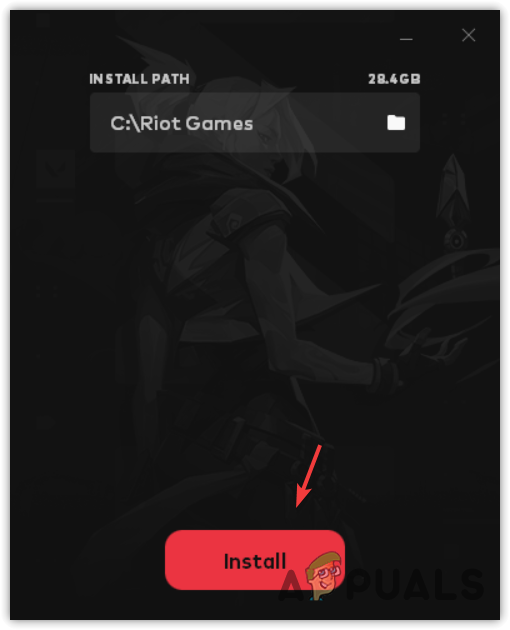
Installing the Riot Client - Once the Riot Client is installed, wait for League of Legends to be verified by the Riot Client.
- Once finished, try launching League of Legends to check whether the issue is resolved.
8. Reinstall League of Legends.
If the League Client still refuses to launch, the final solution is to reinstall League of Legends. Since we have tried reinstalling the Riot Client, it means the problem must be in the game files, causing the League Client not to launch.
To reinstall League Of Legends:
- Hold the Windows key and press the R key to open the Run Window.
- Type appwiz.cpl in the search box and click OK to navigate into programs and features.
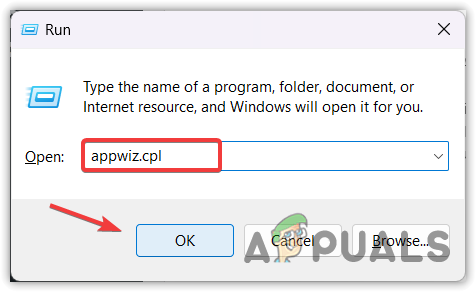
Opening Control Panel Programs and Features - Right-click on League of Legends and click Uninstall.

Uninstalling League Of Legends - Once it is uninstalled, download the league of legends installer and then follow the remaining instructions to install LOL.
- Once completed, the issue should be fixed.
9. Submit a ticket to Riot Games.
If reinstalling LoL has not fixed the issue, in this case, you need to submit a ticket to Riot Games about your issue. The Riot Support team will contact you to resolve this problem. They might ask for League of Legends log files. Therefore, it is recommended to submit log files along with your ticket.
To gather log files and submit a ticket, follow these steps:
- Download the Riot Repair Tool using the link.
- Once the download is fixed, run the Riot Repair Tool installer.
- Once it is installed, open the Riot Repair Tool by right-clicking and selecting Run as administrator.
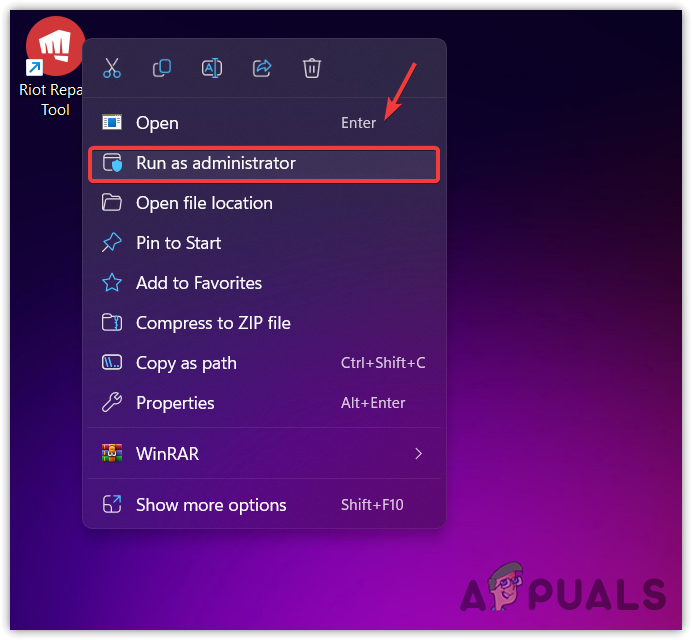
Running Riot Repair Tool as an administrator - Now, select League of Legends and click “Start” to gather its log files.
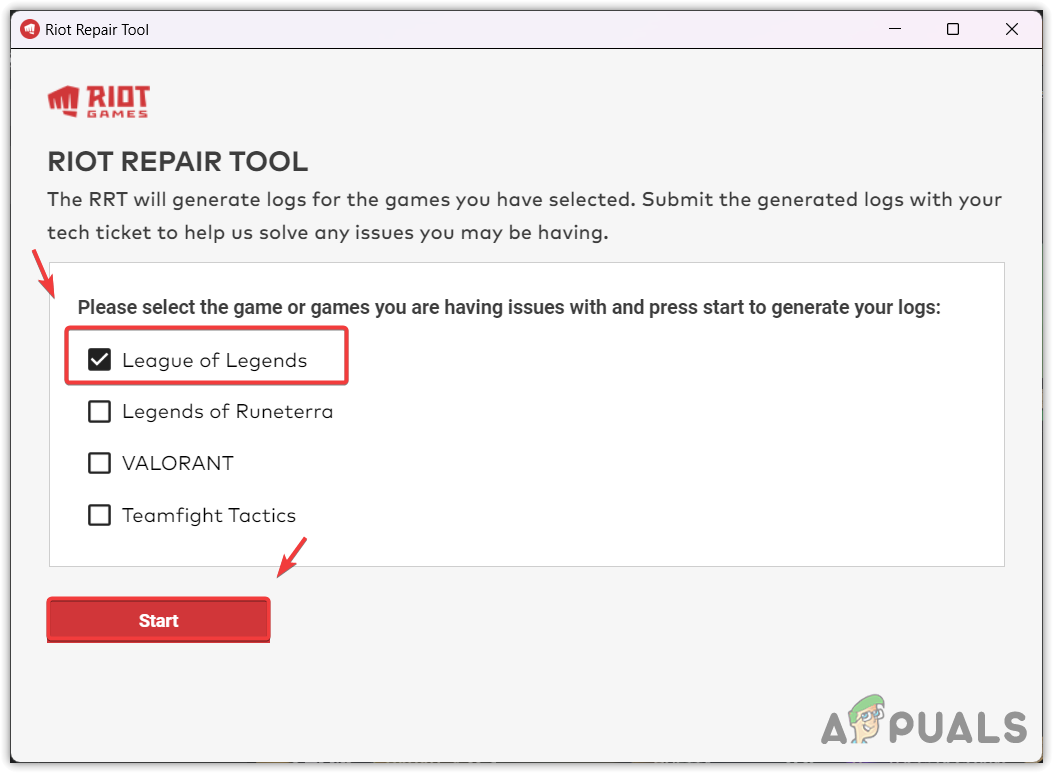
Gathering League Of Legends Logs Files - Once completed, click “Finish” and close the Riot Repair Tool.
- Now, go to the desktop, right-click the Riot Logs folder, hover over WinRAR, and click “Add to archive” to make a zip folder. You can also use other archive utilities, such as 7Zip.
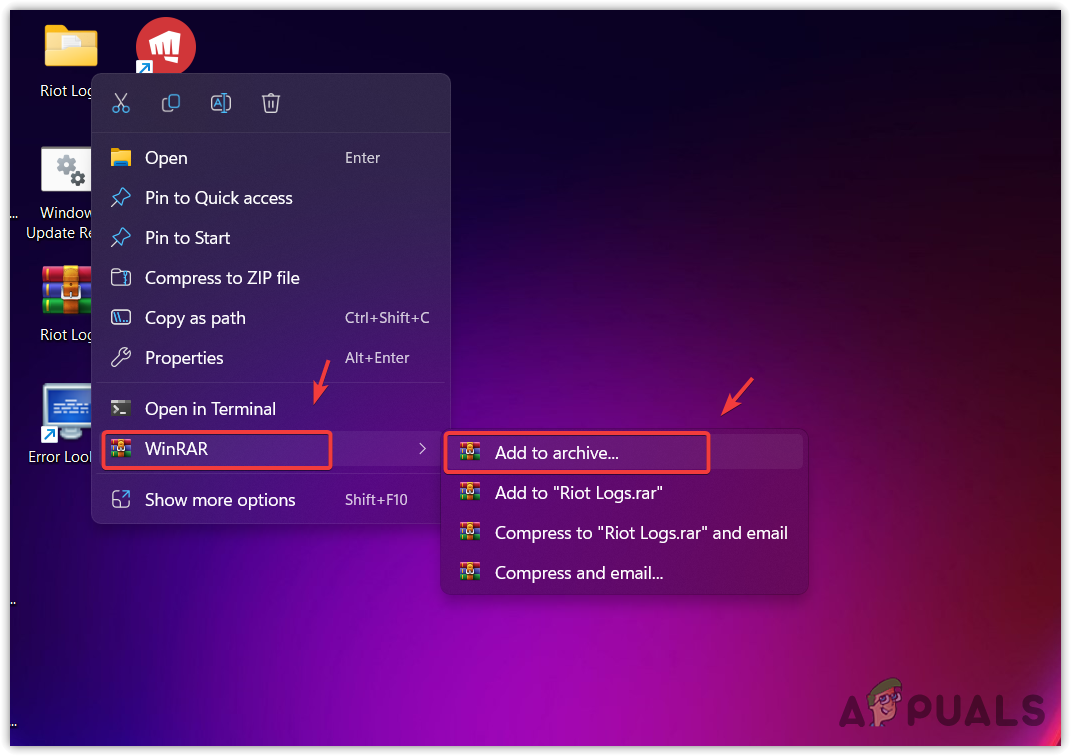
Making a Logs ZIP folder - Once completed, your next step is to submit the log files along with your ticket.
- Visit the League Of Legends Riot Games Support.
- Scroll down a little bit and click the “Submit A Ticket” option.
- Choose a request type from the options. You can select tech issues: install, patch, lag, or crashes.
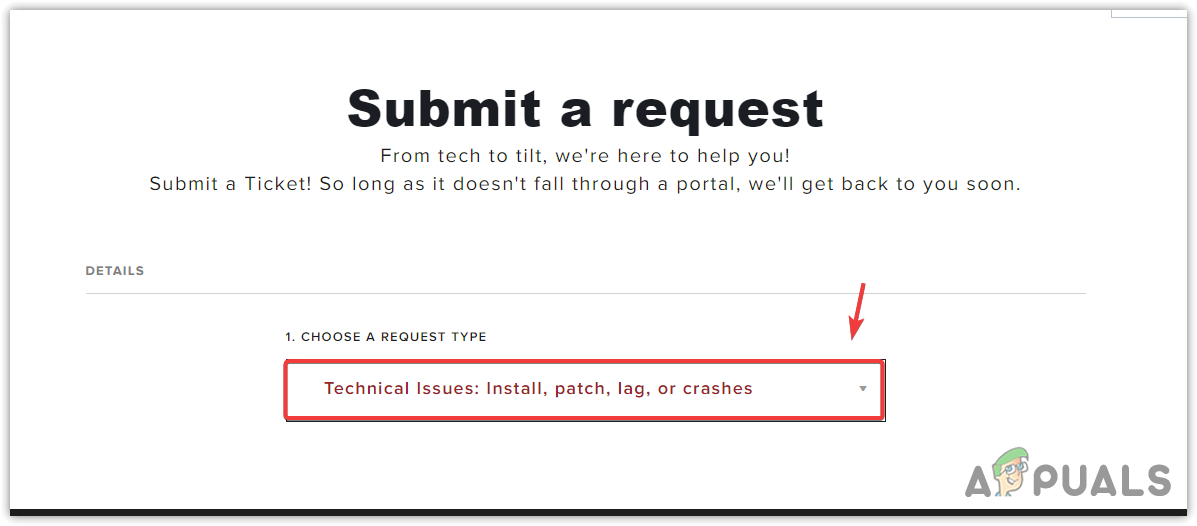
Selecting a Request Type for this issue - Sign in to your account, then fill out the form that best describes your issue.
- Finally, add the Logs ZIP folder and click “Submit a Ticket.
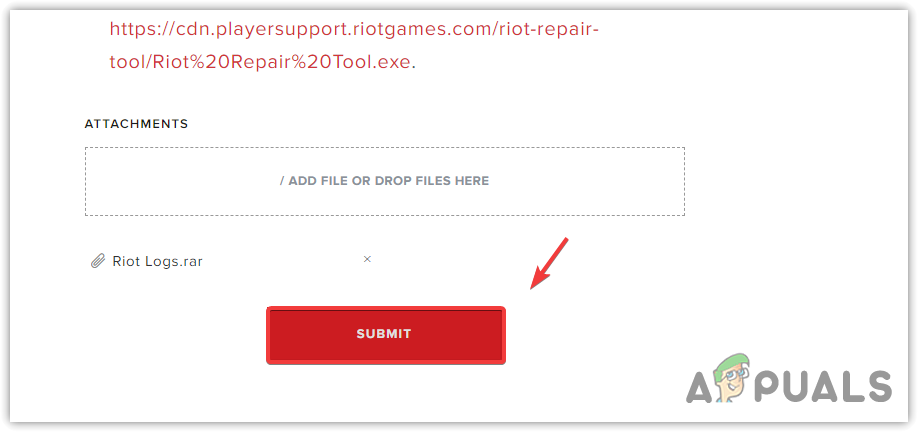
Submitting a Ticket to Riot Games Support - Once done, wait for the response in your Gmail account.
League Client won't open- FAQs
If your league client is not launching, open Task Manager and close all the league client processes. Once done, open the league of legends directory, and run the league client as an administrator.
Your League Client won’t open if you don’t have permissions or your firewall is interfering and blocking the League Client executable file. To fix this issue, just run the league client as an administrator but make sure to close all the league client processes before running it as an administrator.





